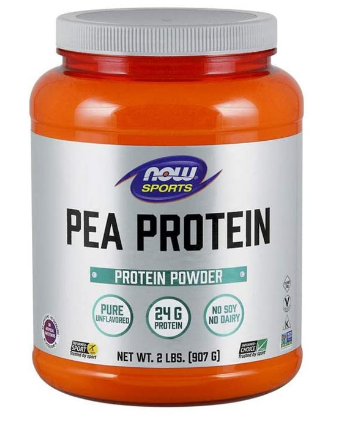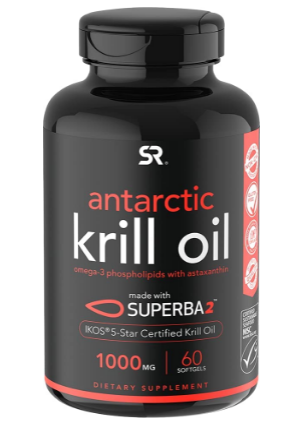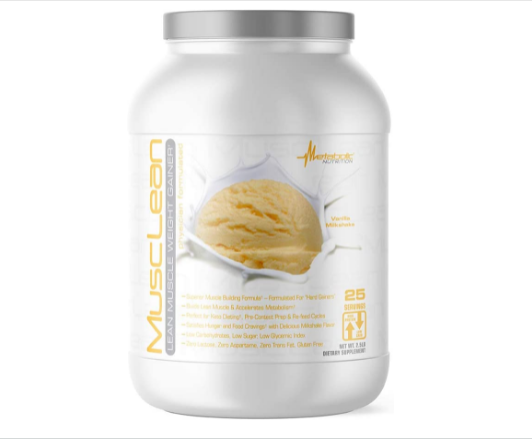Top & Best Pea protein Review 2022 – How to Select Ultimate Buyer’s Guide
Pea protein: What’s the best in 2022?
Accumulating benefits and supporters, pea protein has increasingly consolidated its position as a great alternative to the athletic and dietary supplements on the market, with an efficient performance in muscle building and an unrestricted consumption. In the Guide you will see below, we will help you find the best compound for your activities and routine.
First, the most important
- Most isolated pea protein supplements are sold in powder form.
- Recent studies claim that pea protein is as efficient a supplement as the famous Whey, but that it needs a higher dosage.
- The dosage of pea protein consumption is calculated between 1.4g and 2g for each kilogram of body weight. Even so, we recommend consulting a doctor or specialist to find out the best dosage.
You may also like:
- Omega 3-6-9: How to choose the best in 2022?
- L-Arginine: What is the best in 2022?
- Biotin: How to choose the best vitamin B7 in 2022
Buying Guide
When it comes to supplementation, be it athletic or nutritional, the best way is always the most natural. This is exactly what pea protein offers, a vegan product and free of additives, but of great efficiency.
Although simple, pea protein has a wide variety of derived supplements, suitable for different purposes, routines and consumption. In our Shopping Guide, we will help you find the best one for you.
How to consume pea protein?
The absolute majority of pea protein supplements are sold in powder form. Thus, it is consumed by dissolving this powder in water or another drink of your choice.
Scarce in carbohydrates, it is more suitable for post-workout consumption.
Because it is highly protein and normally low in carbohydrates, it is more suitable for post-workout consumption, in the case of athletic supplementation, and with a meal, for nutritional supplements.
Its standard dosage is approximately 1.5g of protein for every kilogram of body weight. This account, however, and the entire dosage must be done with a doctor, a nutritionist or another specialist.
What does pea protein taste like?
Before you ask yourself, no, pea protein doesn’t taste like pea. Its process of obtaining is similar to that of a flour, and the resulting powder is practically tasteless.
The flavors of the products, therefore, are artificial, but not necessarily in artificial substances. The most common flavors are: chocolate, vanilla, strawberry and cocoa.
Did you know? The green pea is the most famous, but the one who provides us with the isolated protein is the yellow pea.
What benefits does pea protein have?
In addition to its natural appearance, pea protein is successful for the accumulation of benefits it provides. Starting with being a complete protein, that is, with all nine essential amino acids.
This makes the product an excellent source of protein and a great ally in maintaining the health of the body in general. It also offers many micronutrients, such as manganese and vitamins (A, B6, B12 , C and K).
The sum of these substances makes pea protein a very beneficial supplement to muscle building and recovery, weight loss and reduced swelling.
What are the advantages and disadvantages of pea protein supplementation?
In addition to many benefits, pea protein has some advantages (and even disadvantages) in its consumption, even more when compared to other products in the segment.
First of all, it is a hypoallergenic product, since it is simple to obtain and is mainly gluten and lactose free. Then, it does not contain cholesterol and other fats, nor does it need additives to be preserved. A clean supplement.
Pea protein is also friendly to vegetarians and vegans, which is useful for athletes and those looking to balance their diet.
On the other hand, it is not very energetic, being somewhat limited in relation to pre-workout consumption. Another unfavorable point is that, as it is natural, it has less concentration.
Benefits
- Hypoallergenic
- Friendly to vegetarians and vegans
- No fats or additives
Disadvantages
- Low energy
- Lower concentration
Pea protein or Whey Protein?
One of the reasons that made pea protein popular was that it could easily replace Whey Protein , one of the most consumed athletic supplements.
The question remains, then. Eliminated cases of restriction, such as vegan and allergic and lactose intolerant (Whey is obtained from milk protein), what is the best option?
The answer may disappoint you, since it is relative, that is, it depends on each case. The point is that both have similar efficiency in building muscle, but with different consumption.
Basically, it is necessary to consume pea protein more often, which in turn has zero side effects. As such, Whey is much more practical, while pea protein is healthier.
How much does it cost and where to buy pea protein?
You may not find it at all athletic supplement stores, but most food supplement stores, healthy food and major fitness chains, plus some pharmacies, have at least a variety of pea protein.
The internet is also a good alternative, on major supplementation sites, in addition to Amazon. The price can vary widely because the amounts and concentrations of the supplement are also variable. You can thus find sachets of R $ 5 and cans of R $ 300.
Purchasing Criteria: Choosing the best pea protein
With so many benefits and recommendations, it can be difficult to choose the best pea protein supplement. So, we put together another list for you, this time with elements that you should note before completing your purchase – in addition, of course, to consult a doctor, a nutritionist or another specialist in the field.
- Quality Certificates
- Flavor
- Dosage
- Easy packing
We will, of course, talk about each of these items, so that your choice is very well grounded, and your purchase, thus, is the best possible.
Quality Certificates
It is very important to know the origin of the ingredients and the production itself.
When we talk about ingestible products and, mainly, of natural origin, it is very important to know the origin of the ingredients and the production itself. In pea protein, this obviously means where the pea comes from, that is, how it is grown, and also how the process of obtaining its protein is.
Unfortunately, this information is not so easy to obtain, regardless of the establishment. Thus, your best guide in this regard are safety certificates, third party tests, among others, which are mandatorily stamped on the packaging.
Flavor
Since many of the supplements are similar, flavor is a great tiebreaker. Try to escape from neutral flavors, which are not usually that neutral, and, mainly, from artificial flavors and flavors.
In addition, it is enough to be guided by your own taste, choosing, as we said, usually between chocolate, vanilla and strawberry. Maybe a cocoa, if you’re lucky.
Dosage
It is always good to repeat that, for the dosage, it is essential to consult a specialist. Therefore, go for your purchase with your recommended dosage in memory.
With this information, just select the product that offers the best cost-benefit, in the sense of more doses for a lower price – but that has added, of course, the other criteria of this list.
Easy packing
With less concentration than other supplements, pea protein needs to be consumed more often during the day, or at least this is a specialized recommendation.
That said, it is valid to prioritize supplements with the easiest packaging, whether to open and close, dose, and, especially, carry with you.
best pea protein powder
pea protein dangers
pea protein vs whey
pea protein benefits
best pea protein powder for weight loss
best pea protein powder for muscle building
pea protein isolate
best vegan protein powder
What’s the best pea protein?
Is Pea based protein good for you?
Which is best whey or pea protein?
Is pea protein inflammatory?
Does pea protein make you gain weight?
Which is better soy or pea protein?
Why does pea protein hurt my stomach?
Why does pea protein give me gas?
Is protein powder bad for your kidneys?





